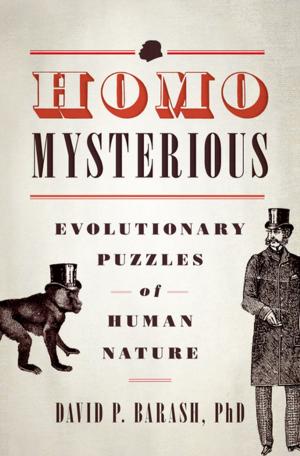The Lion's World: A Journey into the Heart of Narnia
A Journey into the Heart of Narnia
Nonfiction, Religion & Spirituality, Christianity, Christian Literature| Author: | Rowan Williams | ISBN: | 9780199323678 |
| Publisher: | Oxford University Press, USA | Publication: | January 25, 2013 |
| Imprint: | Oxford University Press | Language: | English |
| Author: | Rowan Williams |
| ISBN: | 9780199323678 |
| Publisher: | Oxford University Press, USA |
| Publication: | January 25, 2013 |
| Imprint: | Oxford University Press |
| Language: | English |
Former Archbishop of Canterbury Rowan Williams offers fascinating insight into The Chronicles of Narnia, the popular series of novels by one of the most influential Christian authors of the modern era, C. S. Lewis. Lewis once referred to certain kinds of book as a "mouthwash for the imagination." This is what he attempted to provide in the Narnia stories, argues Williams: an unfamiliar world in which we could rinse out what is stale in our thinking about Christianity--"which is almost everything," says Williams--and rediscover what it might mean to meet the holy. Indeed, Lewis's great achievement in the Narnia books is just that-he enables readers to encounter the Christian story "as if for the first time." How does Lewis makes fresh and strange the familiar themes of Christian doctrine? Williams points out that, for one, Narnia itself is a strange place: a parallel universe, if you like. There is no "church" in Narnia, no religion even. The interaction between Aslan as a "divine" figure and the inhabitants of this world is something that is worked out in the routines of life itself. Moreover, we are made to see humanity in a fresh perspective, the pride or arrogance of the human spirit is chastened by the revelation that, in Narnia, you may be on precisely the same spiritual level as a badger or a mouse. It is through these imaginative dislocations that Lewis is able to communicate--to a world that thinks it knows what faith is--the character, the feel, of a real experience of surrender in the face of absolute incarnate love. This lucid, learned, humane, and beautifully written book opens a new window onto Lewis's beloved stories, revealing the moral wisdom and passionate faith beneath their perennial appeal.
Former Archbishop of Canterbury Rowan Williams offers fascinating insight into The Chronicles of Narnia, the popular series of novels by one of the most influential Christian authors of the modern era, C. S. Lewis. Lewis once referred to certain kinds of book as a "mouthwash for the imagination." This is what he attempted to provide in the Narnia stories, argues Williams: an unfamiliar world in which we could rinse out what is stale in our thinking about Christianity--"which is almost everything," says Williams--and rediscover what it might mean to meet the holy. Indeed, Lewis's great achievement in the Narnia books is just that-he enables readers to encounter the Christian story "as if for the first time." How does Lewis makes fresh and strange the familiar themes of Christian doctrine? Williams points out that, for one, Narnia itself is a strange place: a parallel universe, if you like. There is no "church" in Narnia, no religion even. The interaction between Aslan as a "divine" figure and the inhabitants of this world is something that is worked out in the routines of life itself. Moreover, we are made to see humanity in a fresh perspective, the pride or arrogance of the human spirit is chastened by the revelation that, in Narnia, you may be on precisely the same spiritual level as a badger or a mouse. It is through these imaginative dislocations that Lewis is able to communicate--to a world that thinks it knows what faith is--the character, the feel, of a real experience of surrender in the face of absolute incarnate love. This lucid, learned, humane, and beautifully written book opens a new window onto Lewis's beloved stories, revealing the moral wisdom and passionate faith beneath their perennial appeal.















